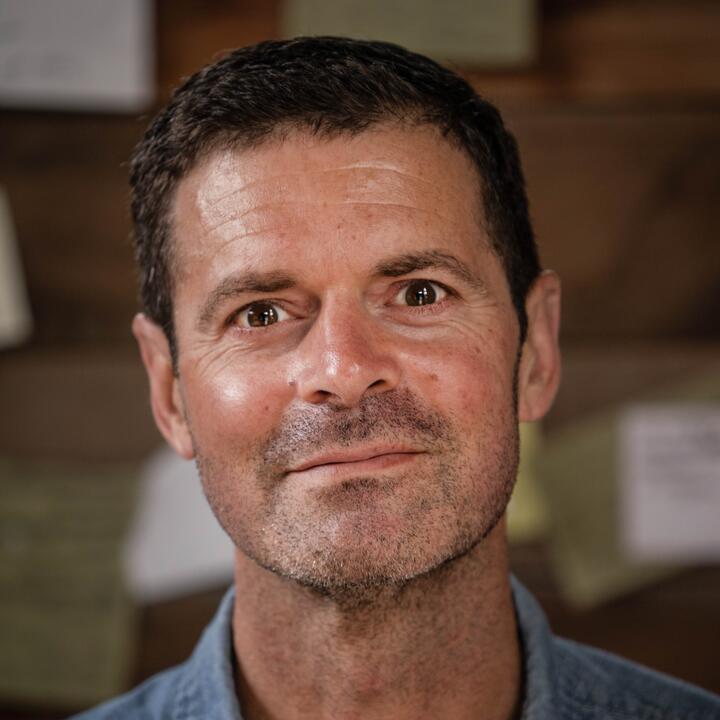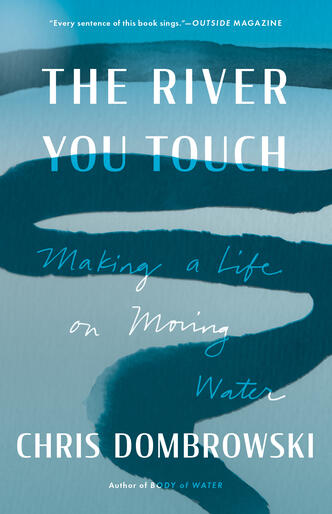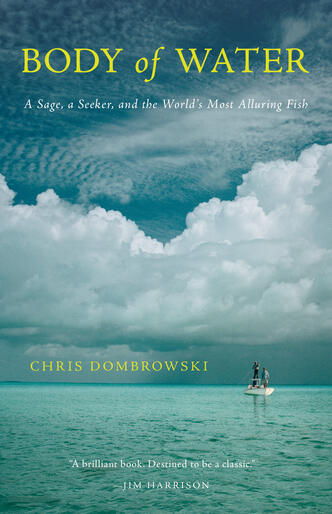
Chris Dombrowski
Chris Dombrowski is the author of The River You Touch: Making a Life on Moving Water. He is also the author of Body of Water: A Sage, A Seeker, and the World’s Most Elusive Fish, and of three acclaimed collections of poems. Currently the Director of the Creative Writing program at the University of Montana, he lives with his family in Missoula.
Like this author? Sign up for occasional updates
Books by Chris Dombrowski
Spending time in wild places with their children, Chris Dombrowski learns that their youthful sense of wonder at the beauty and connectivity of the more-than-human world is not naivete to be shed, but rather wisdom most of us lose along the way—wisdom that is essential for the possibility of transformation.
The author was in the Bahamas, pursuing bonefish, when he had a life-changing encounter with David Pinder, a legendary bonefishing guide. Here he tells Pinder’s story, as well as that of an ecology, of an industry, and enlightenment.
Author Q & A
- Question
A lot of writers are drawn to fly fishing. Why do you think that is?
Jonah Ogles, Outside MagazineAnswerI’m not sure exactly. I wasn’t ever a writer who started fishing. Pretty early on, I think after reading Zane Grey, I determined that I wanted to be a writer who fished and not a fisherman who wrote about fishing. But it is a noticeable thing. I don’t think you would say, So many writers play an instrument, even though there are presumably as many writers who play an instrument as there are writers that fish. I think it’s because of attention on the physical world. I think that the act of writing can be an entrance into a wilderness in the same way that a canyon can be. I’ve thought about fishing a lot as a metaphor for the act of writing. Any angler who’s ever spent a good amount of time on the water has struck those kind of magical golden moments, when suddenly the river comes alive. You’re fishing the same pool you’ve fished 15 times and suddenly there are trout rising everywhere in it in a way you’ve never imagined before. I think a similar sensation can occur for the writer, too—when language is coming alive and bristling and sparking. And a lot of it has to do with putting oneself in the stream over and over again.
- Question
When was the moment that you realized you had that need to tell stories?
Jonah Ogles,Outside MagazineAnswerI recently wrote an essay about my high school English teacher. He was a fascinating man named Jim Colando. He basically rescued me from being a jock for the rest of my life. I was really involved in sports all through college. He knew that I had just started fly fishing, maybe a year or so before. And he came into class and he handed me A River Runs Through It and said, I think you may like this book. By the time class was over I was on page 20, by the time school got over I was on page 50. It was the first book I read cover to cover that wasn’t required for class. In that experience came the realization that my experiences in the physical world could be completely re-enacted in language. That was a magical experience. And with it came also a kind of charge. Suddenly it’s not just enough to exist in the physical world, I have to find a way to reconstruct the experience in language. Or re-live experiences, which is what writing is. It’s a second life.
- Question
Your summers out in Montana, that guide schedule must be crazy. You have to be up really early or really late depending on conditions or the client. How do you balance your writing time with that kind of schedule?
Jonah Ogles,Outside MagazineAnswerWell, a lot of it happens on the backs of receipts or in a little notebook I keep in the car. I just don’t get a ton of writing done from the end of May through the end of August. So then September rolls around and I feel this immense pressure of all the images or the things I’ve jotted down over the months, and I’m going to explode if I can’t sit down and start doing some writing. Norman MacLean called it a recipe for schizophrenia, going back and forth between teaching and his home in Montana. But it’s become more and more part of the rhythm of my life. You know, just about the time. This is going to make it sound too perfect, because usually I could use a little more outdoor and a little less teaching time. But just about the time I’m ready to be done with teaching, fishing season rolls around. And just about the time I’m ready to be done fishing, it’s time for school.
- Question
Does the guiding ever get old?
Jonah Ogles,Outside MagazineAnswerI’m in my 17th year guiding, and 70 percent of my clients are return customers. So 60 days of my summer are spent with my friends. They’re interesting. I have a Jungian psychologist who’s a regular client, a Hollywood acting coach, a world-renowned photographer. A British timber baron. I keep saying that if I didn’t have to gas up the car, clean the boat, or get lunch together every day, I’d never stop. If I had a roadie, I’d guide forever.
You Might Enjoy
Surrender to the current; on writing to survive grief, finding comfort in one’s hybridity, and resisting the urge to write like Rimbaud
Chris Dombrowski is the author of The River You Touch: Making a Life on Moving Water. He is also the…
In Person: Angela Pelster at A Room of One's Own
Join Angela Pelster at A Room of One’s Own for a reading and discussion of her latest work, The Evolution…

